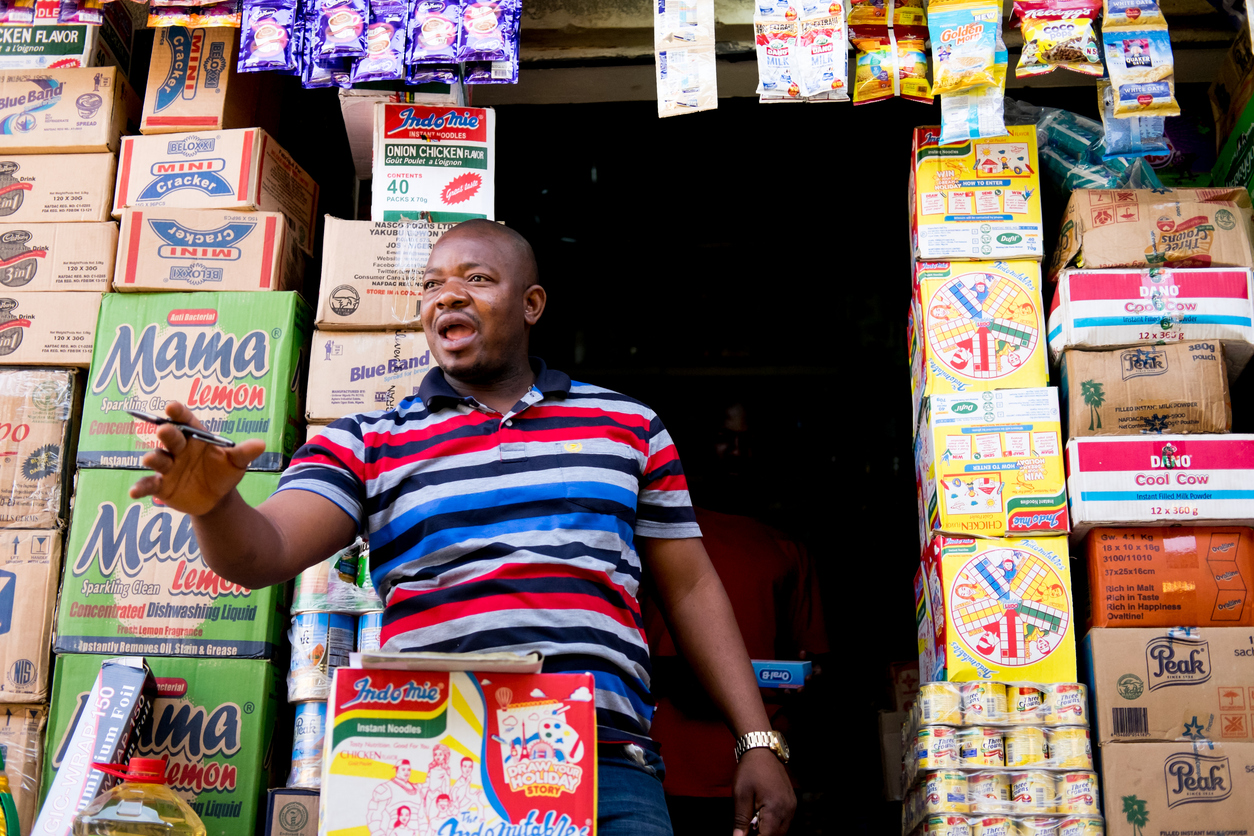Exploring the Vibrant Ariaria International Market in Aba: A Hub of Local Goods and Craftsmanship
Exploring the Vibrant Ariaria International Market in Aba: A Hub of Local Goods and Craftsmanship
Step into the bustling heart of Aba, Nigeria and you’ll find yourself surrounded by a kaleidoscope of colors, sounds, and smells at the Ariaria International Market. This vibrant marketplace is not just a hub for local goods and craftsmanship; it’s a rich tapestry of culture, tradition, and entrepreneurial spirit. Join us as we explore this dynamic marketplace where every corner holds a treasure waiting to be discovered.
Introduction to the Ariaria International Market
The Ariaria International Market, located in the bustling city of Aba in Nigeria, is a hub of local goods and craftsmanship. It is widely known as one of the largest and busiest markets in West Africa, attracting thousands of visitors daily. The market is not only a major economic hub for the region but also a cultural landmark that showcases the rich heritage and ingenuity of Nigerian artisans.
Established in 1976, the Ariaria International Market has grown exponentially over the years to become a global trading center with over 37,000 shops spread across 653 acres of land. The market’s name comes from its location on Ariaria Street, where it started as a small cluster of traders selling fabrics and clothing materials. Today, it has expanded to include various sections for different items such as electronics, food products, household goods, and more.
As you step into this vibrant marketplace, you are greeted by a maze of narrow alleyways lined with colorful stalls overflowing with an array of merchandise. From locally produced fabrics like adire and ankara to intricate handcrafted jewelry made from brass and beads, there is something for everyone at Ariaria International Market. You can also find traditional African attire like agbada or kaftans made by skilled tailors who have been perfecting their craft for generations.
One unique aspect of this market is its emphasis on showcasing authentic Nigerian products. Many vendors here are small-scale entrepreneurs who take great pride in their indigenous goods and uphold traditional methods passed down through their families. This dedication to preserving culture adds character to the shopping experience at Ariaria International Market.
Aside from being a shopper’s paradise, this market plays a significant role in boosting Nigeria’s economy by providing job opportunities for thousands of people within Aba and its surrounding areas. It also serves as an avenue for many rural farmers to sell their produce directly to consumers without intermediaries.
In recent years, efforts have been made to modernize the market with the introduction of technology and better infrastructure. However, this has not taken away from its authentic charm and bustling energy. The Ariaria International Market remains an important part of Aba’s identity and continues to attract tourists from all over the world.
A visit to Ariaria International Market in Aba is not just a shopping trip but also an immersion into Nigerian culture, tradition, and entrepreneurship. It is a must-visit destination for anyone looking to experience the true essence of local goods and craftsmanship in West Africa.
History and significance of the market in Aba
The city of Aba, located in the southeastern region of Nigeria, is home to one of the most vibrant and bustling markets in Africa – the Ariaria International Market. This market has a rich history that dates back over a century and holds great significance for both locals and visitors alike.
The origins of the market can be traced back to the early 1900s when it was known as “Ekeoha Market.” It started out as a small trading center where villagers from nearby communities would gather to sell their goods. Over time, it grew in size and popularity, attracting traders from all across the region. By the 1950s, it had become one of the largest markets in West Africa.
In 1971, with an aim to further develop trade and commerce in Aba, the state government declared Ekeoha Market as an international market and renamed it “Ariaria.” The name was derived from a nearby river that flows through Aba and has cultural significance for the Igbo people who reside there. Today, Ariaria International Market covers over 400 acres of land and houses thousands of shops selling everything from clothing and household items to electronics and food products.
One of the main reasons for its significance is its role as a major economic hub not just for Aba but for all of Nigeria. The market is responsible for generating millions of dollars in revenue annually, making it a vital contributor to the local economy. This growth has also led to significant employment opportunities for residents, with estimates suggesting that more than 20% of working-class individuals in Aba are employed by or affiliated with this market.
Moreover, Ariaria International Market is also renowned for its skilled artisans who produce high-quality local goods such as shoes, bags, furniture, textiles, and more. These craftsmen have honed their skills over generations through traditional techniques passed down from their ancestors. Many visitors come specifically to purchase these unique handcrafted items, making the market a popular tourist destination.
Apart from its economic importance, Ariaria International Market also holds cultural significance for the people of Aba. It serves as a central meeting place where people from different backgrounds and cultures come together to trade and interact, creating a sense of community and unity.
The history and significance of Ariaria International Market in Aba cannot be overstated. From its humble beginnings as a small trading center to becoming one of the largest markets in Africa, it has played an integral role in shaping the city’s economy and cultural identity. A visit to this vibrant market is truly an experience not to be missed.
Local goods and craftsmanship showcased at Ariaria
The Ariaria International Market in Aba is not only known for its bustling atmosphere and diverse range of goods, but also for its celebration of local goods and craftsmanship. As one of the largest markets in West Africa, Ariaria is a hub for showcasing the rich culture and talent of the Aba community.
Walking through the market, visitors are greeted with an array of stalls selling traditional handcrafted items such as clothing, bags, shoes, and accessories. These products are made by skilled artisans who have inherited their trade from generations before them. The attention to detail and quality in these locally made items is truly impressive.
One can find beautifully woven fabrics in vibrant colors and intricate designs at every turn. The Igbo people of Aba are renowned for their expertise in weaving and dyeing techniques using locally sourced materials like cotton and silk. This creates a symbiotic relationship between the market vendors who sell the finished products and the farmers who supply them with raw materials.
Aside from clothing, another must-see section at Ariaria is dedicated to leather goods. Leather crafting has been a part of Aba’s economy since colonial times when British traders introduced it to locals as a means of trade. Today, this tradition continues with skilled craftsmen producing high-quality leather products such as bags, belts, wallets, and shoes using traditional methods passed down through generations.
The market also boasts a wide variety of handmade jewelry crafted from locally sourced materials including beads, shells, bones, and metals. Each piece tells a unique story inspired by African heritage and traditions. From statement necklaces to delicate earrings, there is something for everyone at Ariaria’s jewelry stalls.
But it’s not just physical products that showcase local craftsmanship at Ariaria – food plays an important role too! Visitors can try delicious dishes cooked over open fires or purchase spices sold by local traders which add flavor to many Nigerian dishes.
In addition to supporting local businesses and preserving cultural practices through purchasing handmade goods, visitors can also witness the craftsmanship in action. Many vendors are more than happy to demonstrate their techniques, giving a firsthand look at the skill and dedication that goes into creating each product.
Ariaria International Market is not just a shopping destination, but also an opportunity to immerse oneself in the vibrant culture and community of Aba. The local goods and craftsmanship showcased here are a testament to the rich history and talent of this bustling city.
– Textiles
The Ariaria International Market in Aba is not just a bustling hub of commerce, but also a treasure trove for textile enthusiasts. Here, you can find an array of vibrant and intricately designed textiles that showcase the rich cultural heritage and craftsmanship of the Igbo people.
One of the most prominent types of textiles found in this market is the Adire cloth. This traditional Yoruba fabric is made using a resist-dyeing technique, where parts of the fabric are tied or stitched to create intricate patterns before being dipped into indigo dye. The end result is a stunning piece of cloth with unique designs and shades of blue. At Ariaria Market, you can find a variety of Adire fabrics ranging from simple geometric patterns to more elaborate motifs depicting scenes from daily life.
Another popular type of textile available at Ariaria Market is Aso Oke. This fabric is traditionally worn by the Yoruba people during special occasions such as weddings and festivals. It is handwoven on narrow looms using locally-grown cotton and silk threads, resulting in a luxurious and durable material. The designs on Aso Oke range from simple stripes to complex geometric patterns, all created with great precision and skill.
For those interested in traditional Igbo attire, the George wrapper is a must-have item from Ariaria Market. This brightly colored fabric features bold patterns and symbols that hold significant meaning within Igbo culture. In addition to its cultural significance, the George wrapper has gained popularity among fashion enthusiasts for its versatility – it can be worn as both a skirt or headwrap.
Aside from these traditional textiles, Ariaria Market also offers an impressive selection of modern fabrics such as Ankara prints and wax prints. These colorful fabrics have gained international recognition for their bold designs and are now frequently incorporated into contemporary fashion pieces.
What sets textile shopping at Ariaria Market apart from other places is the opportunity to witness local artisans at work creating these pieces. Many of the fabrics available here are hand-dyed and woven by skilled craftsmen, preserving age-old techniques that have been passed down through generations.
Textiles at Ariaria International Market tell a story – one of tradition, culture, and skillful craftsmanship. Whether you are looking to add to your collection or simply appreciate the beauty of these fabrics, a visit to this bustling market is a must for any textile enthusiast.
– Shoes
The vibrant Ariaria International Market in Aba is not only known for its impressive collection of local goods and craftsmanship, but also for its wide selection of shoes. This bustling market offers a variety of footwear options, ranging from traditional hand-crafted sandals to modern designer sneakers.
One of the most popular types of shoes found at Ariaria International Market are the locally made leather sandals. Made by skilled artisans using traditional techniques passed down through generations, these sandals are not only stylish but also durable and comfortable. They come in various designs and colors, making it easy to find a pair that suits your personal style.
For those looking for more modern footwear options, the market offers an array of brand name sneakers at affordable prices. These shoes may be imported from other countries, but they are sold at much lower prices than you would find in regular retail stores. Whether you’re looking for Nike, Adidas or Puma, you can find them all here at Ariaria International Market.
In addition to sandals and sneakers, the market also boasts a selection of locally made dress shoes and boots. These leather shoes are crafted with great attention to detail and offer a unique touch to any outfit. And what’s even better is that you can have them custom-made according to your preferences – from the type of leather used to the design details.
Aside from footwear for adults, this market also has plenty of options for children’s shoes. From cute little sandals for toddlers to sturdy school shoes for older kids, there is something suitable for every child’s needs. And with such affordable prices, parents can easily stock up on multiple pairs without breaking the bank.
But it’s not just about buying shoes at Ariaria International Market – you can also witness how they are made right before your eyes! Many shoemakers set up shop within the market premises where you can watch them create their masterpieces using age-old techniques. It’s a fascinating experience that gives visitors an appreciation for the skill and craftsmanship that goes into making each pair of shoes.
Ariaria International Market in Aba is a hub for local goods and craftsmanship, including a diverse collection of shoes. From traditional hand-crafted sandals to modern designer sneakers, this market has something for everyone. So make sure to explore this bustling marketplace on your next visit to Aba!
– Leather products
The Ariaria International Market in Aba is a bustling hub of local goods and craftsmanship, and one of the most vibrant sections of this market is dedicated to leather products. From handbags and shoes to belts and wallets, the leather section at Ariaria offers a wide variety of high-quality items that cater to all tastes and budgets.
Aba has long been known as the “Leather City” of Nigeria, with artisans perfecting their craft over generations. This expertise is evident in the quality of leather products found at Ariaria market. The vendors take great pride in their workmanship, using traditional techniques passed down through families to create durable and stylish pieces.
One can spend hours browsing through the different stalls at the leather section of Ariaria market. Each stall offers its unique selection of leather goods, showcasing both traditional designs and modern styles. Whether you are looking for a classic black leather bag or a colorful statement piece, you will find it here.
One popular item among visitors is the locally made shoes available in abundance at this market. These shoes are not only fashionable but also sturdy enough to withstand daily wear and tear. The skilled cobblers at Ariaria use genuine leather sourced from nearby tanneries to create these shoes, ensuring excellent quality.
In addition to footwear, there are also various other accessories such as belts, wallets, and keychains made from premium leather on offer. These products come in an array of designs ranging from simple and elegant to bold and trendy – catering to different fashion preferences.
What makes shopping for leather products at Ariaria even more exciting is that most items can be customized according to your liking. If you have a specific design or color in mind, you can have it made by one of the many skilled craftsmen present at the market.
Moreover, purchasing these handmade items directly from the artisans supports local businesses and helps sustain this age-old tradition of leather craftsmanship in Aba. By buying from these vendors, you can not only own a unique and high-quality product but also contribute to the local economy.
The leather section at Ariaria International Market is a must-visit for anyone looking to immerse themselves in the rich culture and heritage of Aba. So head over to this bustling market and treat yourself to some beautiful leather products while supporting local artisans.
How to navigate the bustling market
Navigating through the bustling market of Ariaria International Market in Aba can be an overwhelming experience for first-time visitors. With its maze-like structure and constant hustle and bustle, it is easy to get lost or feel intimidated. However, with a few tips and tricks, you can navigate your way around this vibrant market like a pro.
Firstly, it is important to have a plan before heading into the market. Make a list of specific items you are looking for and which sections of the market they can be found in. This will save you time and make your shopping experience more efficient.
As you enter the market, keep in mind that there are designated areas for different types of goods such as clothing, shoes, accessories, food items, etc. Ask around or look at signs to help guide you to the section you need.
Another helpful tip is to dress comfortably and wear appropriate footwear. The market can get crowded and some paths may be uneven or slippery, so wearing comfortable clothes and shoes will make navigating much easier.
It is also useful to carry small notes of cash as most transactions in the market are done in cash. This will allow for easier bargaining with vendors and prevent any potential issues with giving change for larger denominations.
When browsing through stalls or shops, don’t be afraid to haggle for prices. It is expected in this market culture and vendors often mark up their prices knowing that customers will negotiate them down. Start by offering half of the quoted price and work your way up from there until both parties reach an agreeable amount.
If you are unsure about the quality or authenticity of an item, don’t hesitate to ask questions or inspect it closely before making a purchase. Some vendors may try to sell counterfeit goods at higher prices so being cautious is important.
When moving around the busy walkways of Ariaria Market, always be aware of your surroundings and keep your belongings close by. While pickpocketing is not a common occurrence, it is better to be safe than sorry.
Take your time and enjoy the experience of exploring this vibrant market. It is not just a place for shopping, but also a hub of local culture and craftsmanship. Interact with the friendly vendors and immerse yourself in the bustling atmosphere to truly appreciate the unique charm of Ariaria International Market.
– Tips for bargaining
Bargaining is a common practice in many markets around the world, and the Ariaria International Market in Aba is no exception. As a vibrant hub of local goods and craftsmanship, bargaining is an integral part of the shopping experience at this market. Whether you are a seasoned bargain hunter or new to the art of haggling, here are some tips to help you navigate through your shopping journey at Ariaria.
1. Do Your Research:
Before heading to the market, it is essential to do some research on the items you wish to purchase. This will give you an idea of their market value and prevent sellers from quoting exorbitant prices. You can also ask locals or other shoppers for recommendations on where to find good deals.
2. Start with a Smile:
A friendly demeanor can go a long way when bargaining at Ariaria International Market. Starting with a smile and greeting the seller politely can help establish a positive rapport and set the tone for negotiations.
3. Know Your Budget:
It is crucial to have a budget in mind before starting your bargaining process. This will help you stay within your means and avoid overspending on items that may seem like good deals.
4. Don’t Be Afraid To Walk Away:
As much as you may want an item, walking away from it can sometimes work in your favor during negotiations. If a seller knows that they may lose out on making a sale, they may be more open to lowering their price.
5. Speak Negotiation Language:
Be prepared to negotiate using phrases like “Can we discuss?” or “What’s your best price?” These phrases convey seriousness and let sellers know that you are looking for a fair deal.
6.Be Reasonable:
While negotiating for lower prices at Ariaria Market is expected, it is essential to be reasonable with your offers. Bargaining too low can come across as disrespectful and offend the seller, which could result in them refusing any further negotiations.
7. Bundle Items:
One of the best ways to get a better deal is to bundle items together. Sellers are often more willing to give discounts when multiple items are being purchased at once.
8. Check for Quality:
While bargaining, it is essential to check the quality of the item you are interested in purchasing. If it is not up to par, you can use this as leverage to negotiate for a lower price.
9. Know When To Stop:
Bargaining can be an exciting and addictive experience, but it is essential to know when to stop and walk away if an agreement cannot be reached. It’s okay not to get a deal on every item; there will always be other vendors selling similar products.
Bargaining at Ariaria International Market requires patience, confidence, and good communication skills. With these tips in mind, you are sure to have a successful shopping experience while supporting local businesses and artisans at this vibrant market.
– Must-visit shops or stands
The Ariaria International Market in Aba, Nigeria is a bustling hub of local goods and craftsmanship. With over 37,000 shops and stands spread across 33 acres of land, it can be overwhelming for visitors to navigate through the market. However, there are certain must-visit shops or stands that should not be missed during your visit to this vibrant marketplace.
1. Handcrafted Ankara Fabrics: One of the most popular items in the Ariaria Market is the handcrafted Ankara fabrics. These colorful fabrics are a staple in Nigerian fashion and can be found in a variety of designs and patterns. You will find numerous shops selling these fabrics at affordable prices, making it a perfect place to stock up on some unique pieces for your wardrobe.
2. Leather Goods: The market is also known for its high-quality leather goods such as shoes, bags, belts, and wallets. Skilled craftsmen use traditional techniques to create these products using locally sourced materials like cowhide and crocodile skin. Head over to Ovom Leather Works where you can witness the artisans at work while browsing through their collection of leather products.
3. Traditional Beads: For those interested in traditional Nigerian jewelry, the Ariaria Market has an array of beautiful beads available at reasonable prices. These intricate beadwork pieces are often worn by tribal chiefs during ceremonies but can also be worn as statement pieces by anyone looking to add some cultural flair to their outfit.
4. Local Food Stalls: No trip to a Nigerian market would be complete without trying out some local delicacies from food stalls located within the market premises. From mouth-watering jollof rice to spicy suya meat skewers, you will find an abundance of delicious options here that will leave your taste buds satisfied.
5.Rugs and Textiles: If you’re looking for home decor items or souvenirs, make sure to stop by one of the many shops selling handwoven rugs and textiles. These colorful and intricately designed pieces are made using traditional techniques passed down for generations and make for a unique addition to any home.
The Ariaria International Market in Aba is a treasure trove of local goods and craftsmanship. With its diverse range of products, it’s no wonder that visitors from all over Nigeria and even abroad flock to this market for an authentic shopping experience. So make sure to check out these must-visit shops or stands during your trip to the Ariaria Market!
The impact of Ariaria on the local economy and community
The Ariaria International Market in Aba, Nigeria, is not just a bustling commercial hub for local goods and craftsmanship – it also serves as a major economic engine for the surrounding community. The market has been a vital part of Aba’s economy and identity for decades, with its impact reaching far beyond the boundaries of its physical location.
One of the most significant ways that Ariaria impacts the local economy is through job creation. According to recent estimates, the market employs over 1 million people directly or indirectly. These jobs range from small scale traders selling their wares to artisans crafting unique products and providing services such as tailoring and shoe making. The market also supports numerous ancillary businesses such as transportation services, food vendors, and packaging companies, which further contribute to employment opportunities in the area. This influx of jobs has helped reduce unemployment rates in Aba and provided many families with a source of income.
Moreover, Ariaria Market plays an essential role in stimulating economic growth within the region. The goods produced by local artisans are sold both locally and internationally, bringing in revenue for both traders and producers alike. This cycle of production and trade allows money to circulate within the community, creating wealth and improving living standards.
Another significant impact of Ariaria on the local economy is its contribution to government revenue through taxes. As one of Nigeria’s largest markets, it generates substantial tax revenue for both state and federal governments. This income helps fund public services such as education, healthcare facilities, infrastructure development projects – all essential components for building a strong community.
Aside from its economic benefits, Ariaria also has a profound influence on the social fabric of Aba. The market acts as a melting pot where people from diverse backgrounds come together to trade ideas, culture, customs,and beliefs while conducting business transactions. It fosters social cohesion among different ethnic groups within Nigeria while promoting unity among Africans who travel from other countries to buy or sell goods in the market.
The Ariaria International Market is more than just a marketplace. Its impact on the local economy and community cannot be overstated. It has provided employment opportunities, stimulated economic growth, and fostered social cohesion among diverse groups. For many locals, it is not just a place to buy or sell goods – it is a way of life and a source of pride for their beloved city of Aba.
Online shopping and shipping options for Ariaria products
Online shopping has become a convenient and popular option for purchasing goods from the Ariaria International Market in Aba. With the rise of e-commerce platforms and online marketplaces, shoppers can now easily browse and purchase a wide range of products from the comfort of their own homes.
One of the major advantages of online shopping is the ability to access a larger variety of products compared to what may be available in physical stores. This is especially beneficial for those who are not able to visit the Ariaria Market in person. By shopping online, customers have access to an extensive selection of locally made goods such as clothing, accessories, shoes, home decor items, and traditional art pieces.
Several websites offer a one-stop-shop for all things Ariaria. These sites work directly with local vendors and artisans from the market, providing shoppers with authentic products at competitive prices. Some even offer discounts or promotions on bulk purchases.
Another advantage of online shopping for Ariaria products is the ease and convenience it offers when it comes to shipping options. Most websites provide multiple shipping methods depending on the customer’s location and preferences. Standard shipping typically takes 2-3 weeks while expedited shipping can take as little as 3-5 business days.
Some websites also offer international shipping options for customers outside Nigeria who wish to purchase goods from Ariaria’s bustling market. This allows people from around the world to experience and support local Nigerian craftsmanship.
To ensure safe delivery of purchased items, most websites have secure payment gateways where customers can pay using various methods such as credit/debit cards or PayPal. This provides peace of mind knowing that transactions are being done securely.
Moreover, online shoppers can track their orders throughout its journey until it reaches their doorstep. This gives reassurance that their package is being handled with care and will arrive within the estimated time frame provided by the website.
In addition to these benefits, some websites also provide customer service assistance for any inquiries or concerns. This allows for a smoother and more efficient shopping experience, making it easier for customers to resolve any issues they may encounter.
Online shopping has opened up endless possibilities for purchasing goods from the Ariaria International Market in Aba. With its wide selection of products, convenient shipping options, and secure payment methods, it has become a popular choice for those looking to support local Nigerian businesses and experience the vibrant culture of Ariaria without having to step foot in the market itself.
Success stories of entrepreneurs from Ariaria
Ariaria International Market in Aba is not just known for its bustling atmosphere and wide array of local goods, but also for the numerous success stories of entrepreneurs who have made their mark in the market. These individuals have not only achieved great success within Ariaria, but also nationally and even internationally.
One such success story is that of Mrs. Chioma Uzochukwu, a fashion designer who started her business with just a small stall in Ariaria over 15 years ago. Today, her brand “Chioma Couture” has gained recognition not only in Nigeria but also in other African countries and even Europe. Her designs are now featured on runways at international fashion shows, bringing pride and recognition to both herself and the Ariaria market.
Another inspiring entrepreneur from Ariaria is Mr. Chinedu Ezeigbo, who started his leather goods business with just a few tools and materials. With hard work and dedication, he expanded his business to include more products such as bags, shoes, belts and wallets. His high-quality products caught the attention of buyers from neighboring countries like Ghana and Cameroon, making him one of the most successful leather craftsmen in the market.
The success stories don’t end there; Mrs. Nkechi Aniagolu’s journey as an entrepreneur began when she took over her mother’s food stall at Ariaria Market after her passing. With determination to continue her mother’s legacy, she expanded her menu to include various local delicacies which became popular among both locals and tourists visiting the market. Her business has since grown into a restaurant within the market that serves authentic Nigerian dishes to hundreds of customers daily.
The story of Mr. Okechukwu Okoro is another noteworthy example of an entrepreneur’s journey from humble beginnings to great success at Ariaria Market. He started his furniture-making business with just three employees but now employs over 50 workers due to high demand for his intricately designed and well-crafted furniture pieces. His products have been featured in high-end hotels, offices, and homes, making him one of the most sought-after furniture makers in the country.
These are just a few of the countless success stories from entrepreneurs at Ariaria Market. From fashion designers to leather craftsmen, food vendors to furniture makers, the market has provided a platform for individuals with talent and determination to achieve their dreams and make a name for themselves. The vibrant atmosphere of Ariaria Market is not only a sight to behold but also an inspiration for aspiring entrepreneurs who dare to dream big.








Comments are closed.